Please join us for the Pulitzer Center Film Festival "Global Crises, Human Stories"––a week-long celebration of reporting from around the world––showcasing feature-length documentary films and shorts by award-winning Pulitzer Center journalists.
The festival opens on Thursday, September 19, with the Washington, DC premiere of "The Abominable Crime," a film about the deadly consequences of homophobia in Jamaica, and the fight for freedom, security, and understanding. From September 20-26, there will be several additional screenings of "The Abominable Crime" as part of the Pulitzer Center Film Festival. See schedule below.
The featured films take us to the Democratic Republic of Congo, Japan, Pakistan, Mexico, Nepal, Jamaica, Haiti, Burkina Faso and Sri Lanka. They put a human face on some of the world's most pressing crises––from labor exploitation, child marriage and suicide as a result of overwork and drug violence to homophobia and rape as a weapon of war. These films present heartbreaking stories of struggle and injustice that rarely receive the attention they deserve––but also stories of hope, redemption and justice in the face of seemingly insurmountable challenges.
A special shorts program features work by award-winning photojournalists, including the premiere of Shiho Fukada's "Japan's Disposable Workers," produced in collaboration with MediaStorm.
Discussions with filmmakers and receptions will follow select screenings. See details below.
Featured Films:
The Abominable Crime: Homophobia's deadly consequences in Jamaica, and the fight for freedom, security––and understanding. Directed by Micah Fink.
No Fire Zone: The true story of war crimes committed at the end of the Sri Lankan civil war in 2009. Directed by Callum Macrae.
Outlawed in Pakistan: A rape victim's odyssey through her country's flawed justice system. Directed by Habiba Nosheen and Hilke Schellmann.
Seeds of Hope: One woman shines a beacon of hope to dispel the despair of women survivors of rape in the Democratic Republic of Congo. Directed by Fiona Lloyd-Davies.
Pulitzer Center Photojournalist Shorts: A special shorts program featuring work by award-winning photojournalists including Shiho Fukada, Stephanie Sinclair, Dominic Bracco II, Larry C. Price, Andre Lambertson, Joshua Cogan, and Allison Shelley.
See below for the week's full schedule and descriptions of the films.
All films will be shown at the West End Cinema
2301 M Street NW
Washington, D.C.
Closest Metro stop: Foggy Bottom (blue/orange lines)
Full Film Festival Schedule
Thursday, September 19: DC Premiere
7 pm: The Abominable Crime
Discussion with director Micah Fink and Maurice Tomlinson
Reception to follow
FREE, but reservations are required as seating is limited.
Please send your reservation request to: [email protected], with the subject line: "Sept. 19: DC Premiere"
Screenings on September 20-26: tickets are $5 general admission, and $3 for students and seniors.
Tickets on sale week prior at http://www.westendcinema.com/
Friday, September 20:
5 pm: No Fire Zone
9:20 pm: Pulitzer Center Photojournalist Shorts
Discussion with Dominic Bracco II ("The Clarinetist") and Allyn Gaestel (reporter on "In Nepal, Exiled Each Month")
Saturday, September 21:
3 pm: The Abominable Crime
7 pm: Outlawed in Pakistan
Discussion with co-director Hilke Schellmann
Reception to follow
Sunday, September 22:
5 pm: Outlawed in Pakistan
9:20 pm: The Abominable Crime
Monday, September 23:
3 pm: No Fire Zone
7 pm: Seeds of Hope
Discussion with Kiersten Stewart, director of public policy and advocacy, at Futures Without Violence, and Gabriel Deussom, program manager at Free the Slaves (FTS) where he manages its anti-slavery programs in eastern Congo in partnership with Congolese civil society organizations.
Also on hand: Celia Richa, senior international policy advocate for Futures Without Violence.
Reception to follow
Tuesday, September 24:
5 pm: The Abominable Crime
8:30 pm: Reception in advance of Pulitzer Center Shorts (tickets for 9:20 pm show required)
9:20 pm: Pulitzer Center Photojournalist Shorts
Discussion with photojournalist Shiho Fukada ("Disposable Workers in Japan"), Justin Kenny (PBS NewsHour Foreign Editor "Child Labor in Burkina Faso's Gold Rush") and Joshua Cogan (photojournalist for "Live Hope Love")
Wednesday, September 25:
3 pm: Outlawed in Pakistan
7 pm: No Fire Zone
Thursday, September 26:
5 pm: Seeds of Hope
9:20 pm: The Abominable Crime
Descriptions of films
The Abominable Crime: Simone, a young lesbian single mother, survives a brutal anti-gay shooting. Now she must choose between hiding with her daughter in Jamaica or escaping alone. Maurice Tomlinson, one of Jamaica's leading human-rights activists, is outed after filing a lawsuit challenging his country's anti-sodomy law. After a flood of death threats, he escapes, and then risks everything to return and continue his activism. Their stories expose the roots of homophobia in Jamaican society, reveal the psychological and social impacts of discrimination, and offer an intimate first-person perspective on the risks and challenges of seeking asylum. Directed by Micah Fink. Running time: 66 minutes. See the trailer.
No Fire Zone: Carefully evidenced and powerfully measured, "No Fire Zone" is a feature length film about the final months of the 26 year long Sri Lankan civil war told by the people who lived through it. It is a meticulous and chilling expose of some of the worst war crimes and crimes against humanity of recent times - told through the extraordinary personal stories of a small group of characters and also through some of the most dramatic and disturbing video evidence of the conflict ever recorded. Directed by Callum Macrae, this film follows two highly influential documentaries on the same subject for the UK's Channel 4. Running time: 93 minutes. See the trailer.
Outlawed in Pakistan: "Outlawed in Pakistan" tells the story of Kainat Soomro as she takes her rape case to Pakistan's deeply flawed court system in hopes of getting justice. The 13-year-old Kainat accuses four men of gang rape and shortly after is ordered to be killed by her village elders. Spanning over five years, the story is told through the perspective of Kainat and the four men accused of her rape. The film shows the extraordinary strength that women like Kainat possess, as they resist societal norms and turn their backs on tribal traditions to demand justice from a legal system that continues to fail them. Directed by Habiba Nosheen and Hilke Schellmann. Running Time 52 minutes. See the trailer.
Seeds of Hope: In a region known as the most dangerous place in the world for women, eastern Democratic Republic of Congo, one woman shines a beacon of hope to dispel the despair of women survivors of rape. Masika Katsuva, herself the victim of multiple rapes, has rescued some 6,000 women and children. In this searing film we also meet the perpetrators of rape, among them soldiers from the Congolese army. These men give extraordinarily open testimony as to why they rape and their attitudes towards their horrific acts. Directed by Fiona Lloyd-Davies. Running Time: 75 minutes.
Pulitzer Center Photojournalist Shorts
Running time for shorts program approximately 75 minutes
Japan's Disposable Workers: Photographer Shiho Fukada documents the lives of disposable workers in Japan through stories that illustrate the impact of the global unemployment crisis and the growing gap between rich and poor––in a country once regarded for its social safety net. Produced in collaboration with MediaStorm.
The Clarinetist: A former school drop-out, Esteban Ruiseco is the type of teenager Mexico's drug cartels prey upon. And he might have joined them, if the clarinet hadn't given him hope for a better future. Directed by Dominic Bracco II.
Child Labor in Burkina Faso's Gold Rush: In just a quarter century, one of the world's poorest countries has transformed itself into Africa's fourth-largest producer of gold. But at what cost to the children who labor in the mines? Directed by Larry C. Price in collaboration with PBS NewsHour.
Too Young To Wed: Every year, throughout the world, millions of young girls are forced into marriage. Child marriage is outlawed in many countries and international agreements forbid the practice yet this tradition still spans continents, language, religion and caste. Directed by Stephanie Sinclair.
In Nepal, Exiled Each Month: In parts of rural Nepal women and girls are segregated from their families during menstruation––leaving them vulnerable to sexual assaults and other hardships. Photography and video by Allison Shelly and additional reporting by Allyn Gaestel. Produced by The New York Times.
Live Hope Love: A journey into the experience of people living with HIV/AIDS in Jamaica––demonstrating resilience, hope and possibility in the face of despair. A selection of short video poems from the Pulitzer Center's Emmy Award-winning interactive site www.livehopelove.com. By poet/author Kwame Dawes and photographer Joshua Cogan. Produced in collaboration with Bluecadet.
Voices from Haiti: This work explores the lives of people living with HIV/AIDS after the devastating earthquake. It is a celebration of their lives and their survival. A selection of short video poems by poet/author Kwame Dawes, photographer Andre Lambertson, with music by composer Kevin Simmonds.
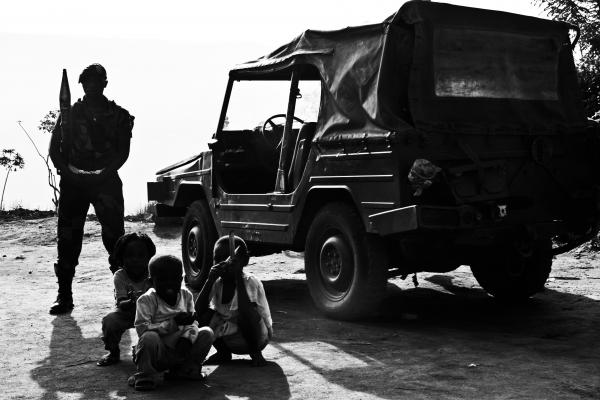
With suffering in Congo unabated, a series of multimedia projects examines a ‘conflict-free’ tin...
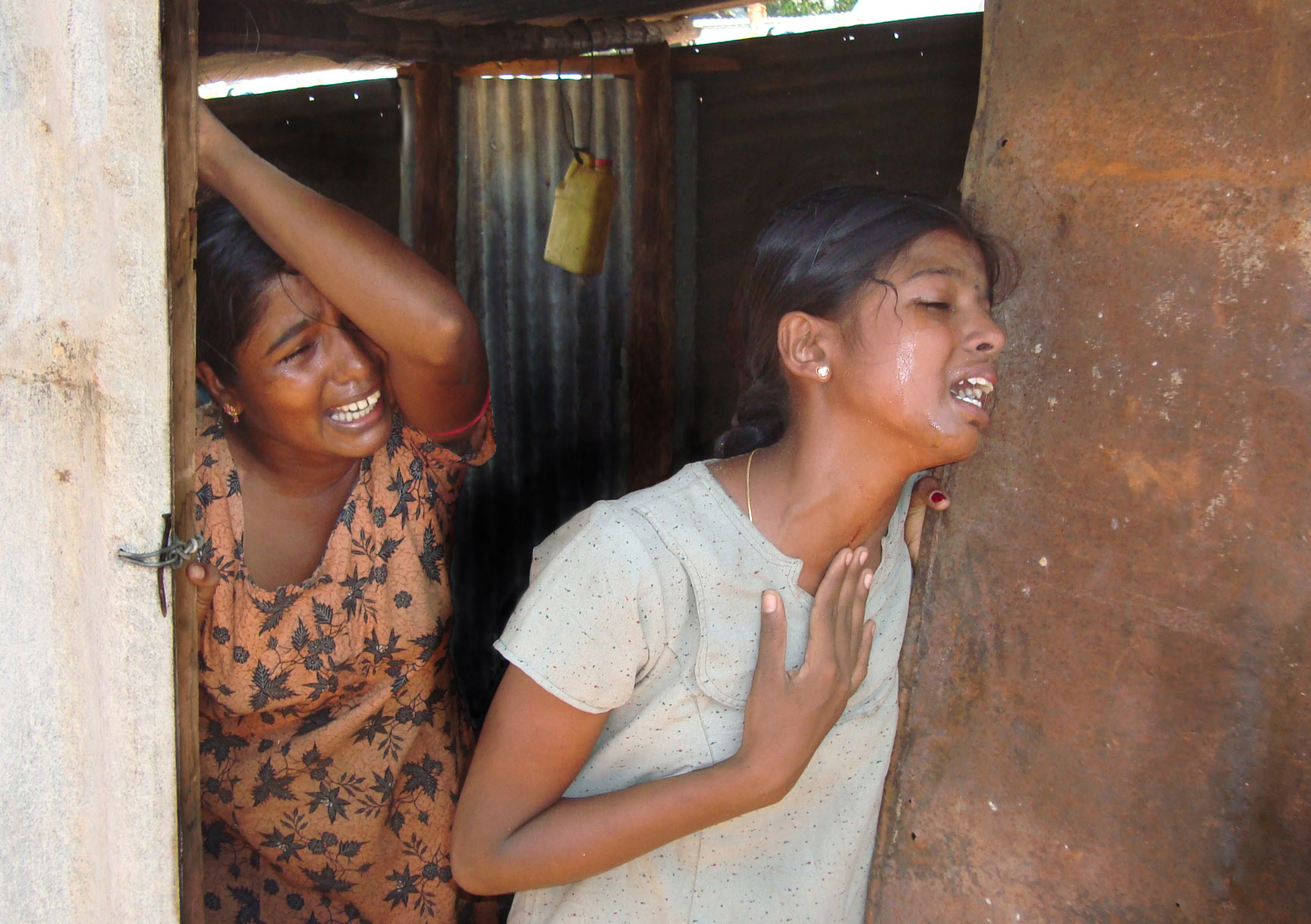
While the world looked away as many as 70 thousand civilians lost their lives, most at the hands of...
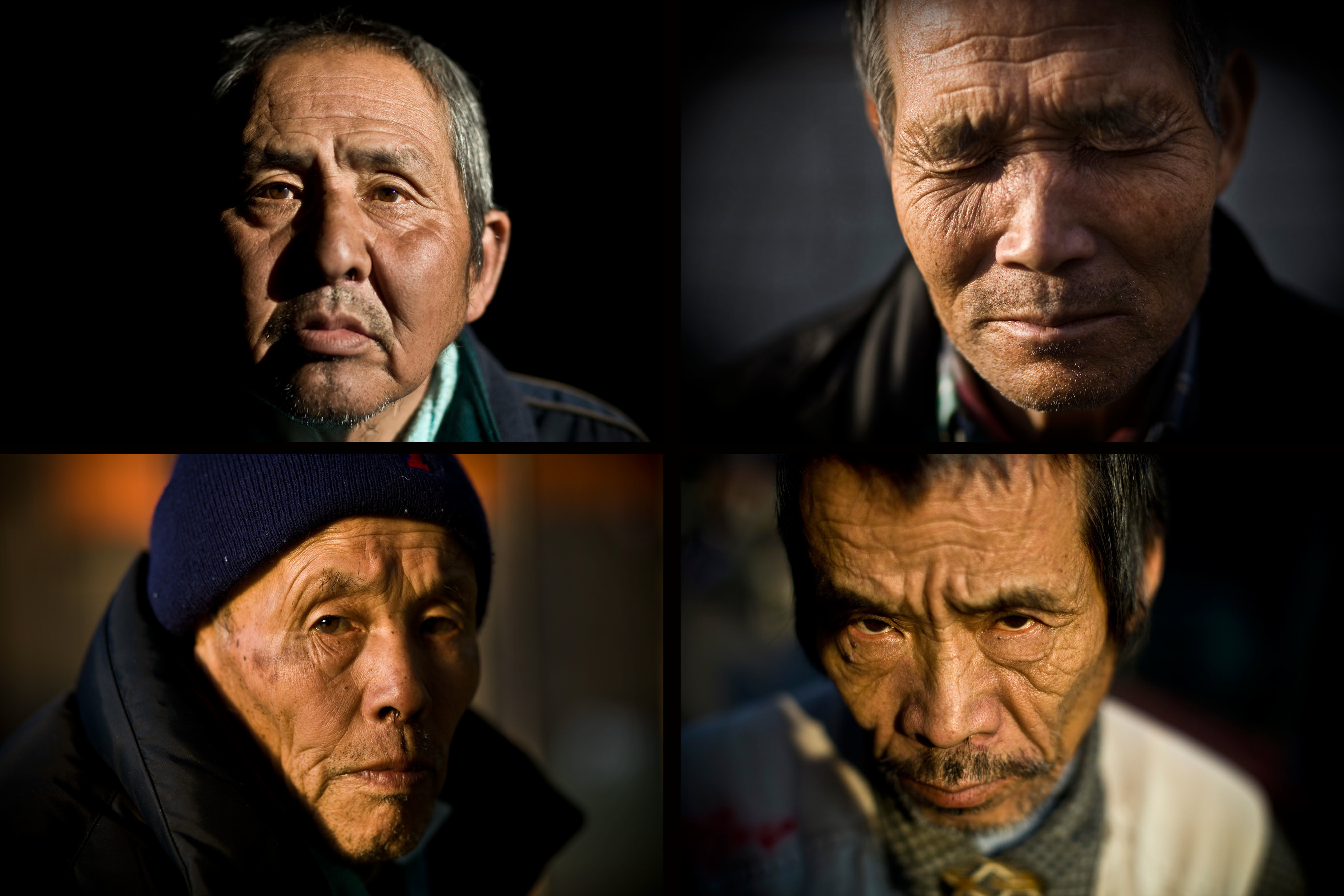
Shiho Fukada documents the lives of disposable workers in Japan in stories that illustrate the...
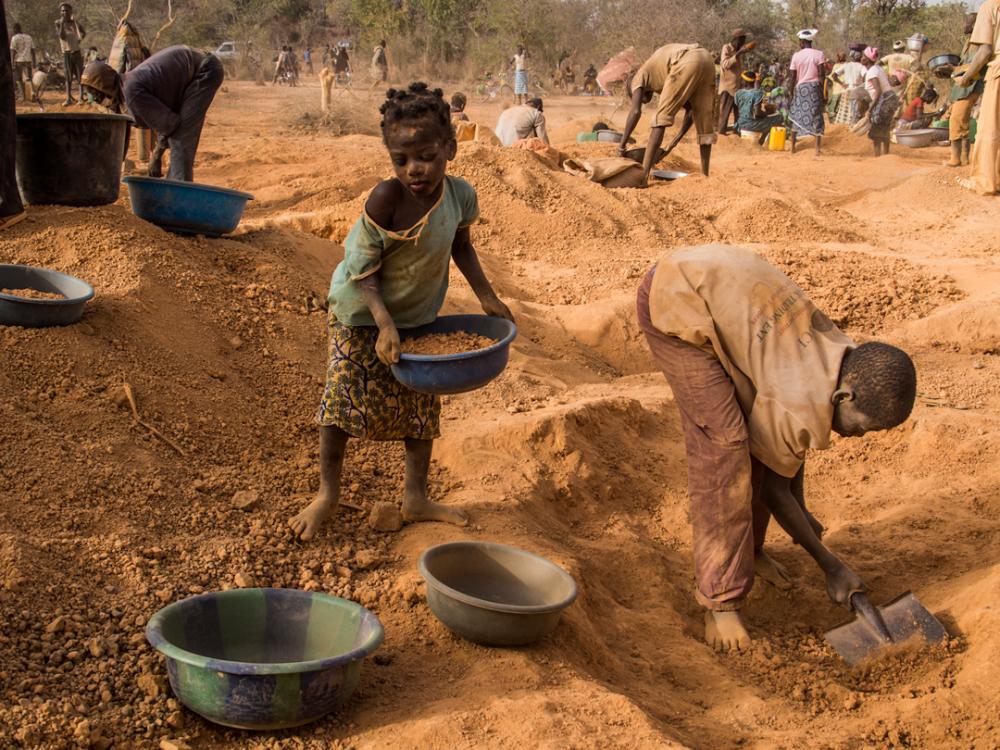
In just a quarter century, one of the world's poorest countries has transformed itself into Africa's...

Poet and writer Kwame Dawes travels to Jamaica to explore the experience of people living with HIV...
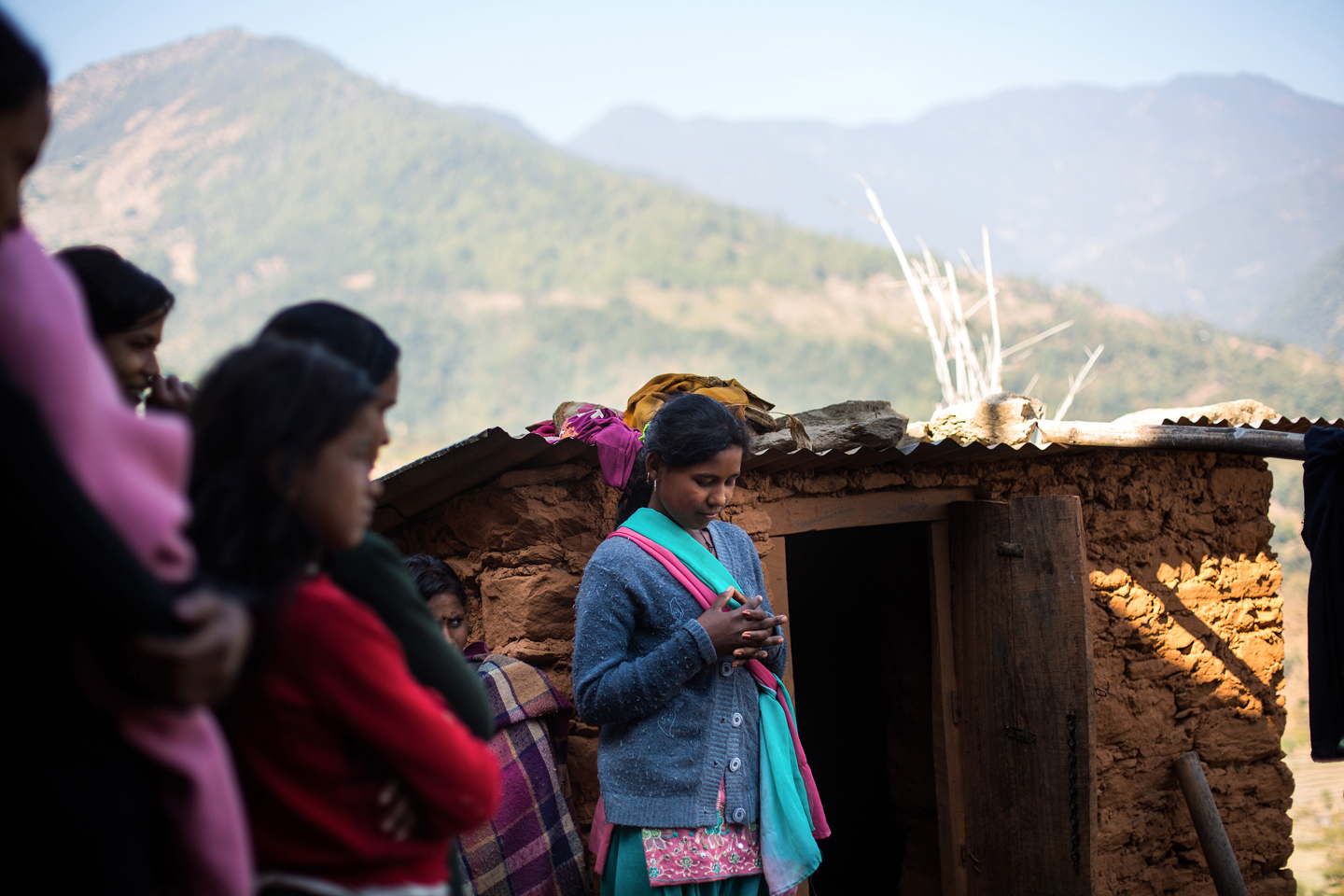
In rural western Nepal, many women are sent to live in animal sheds while they are menstruating...

















